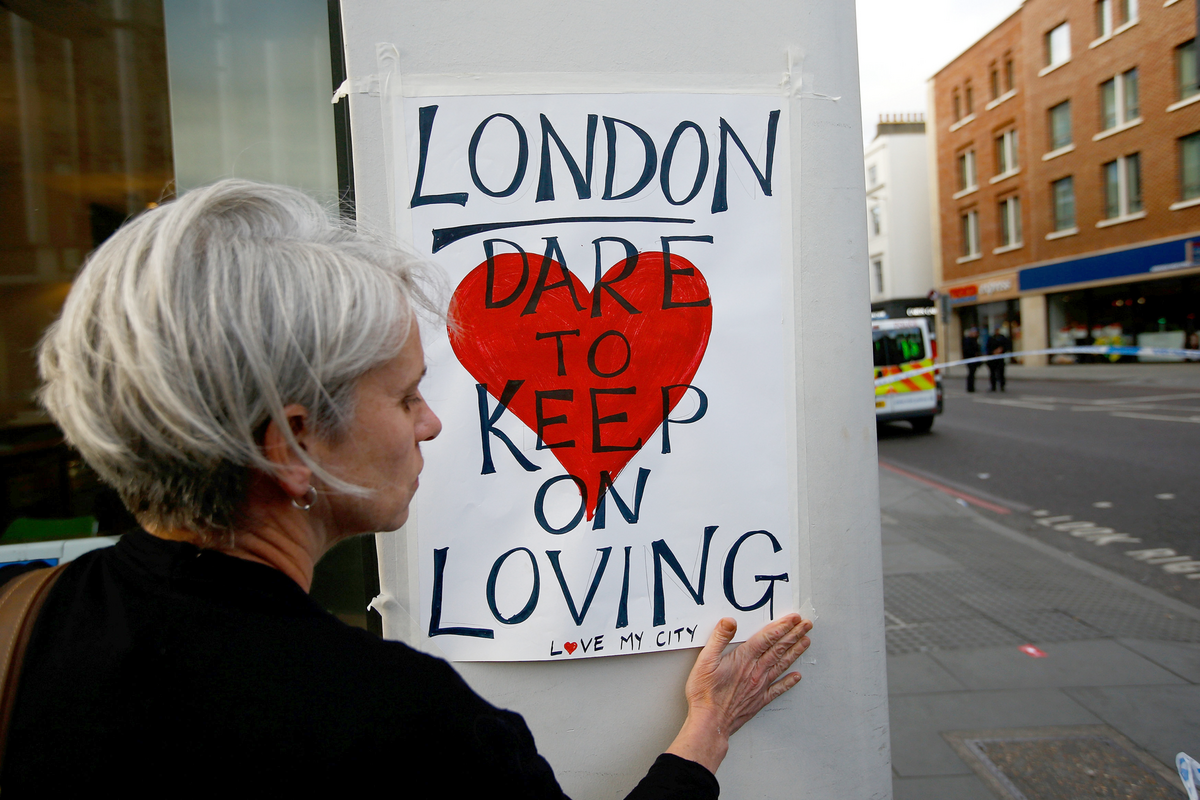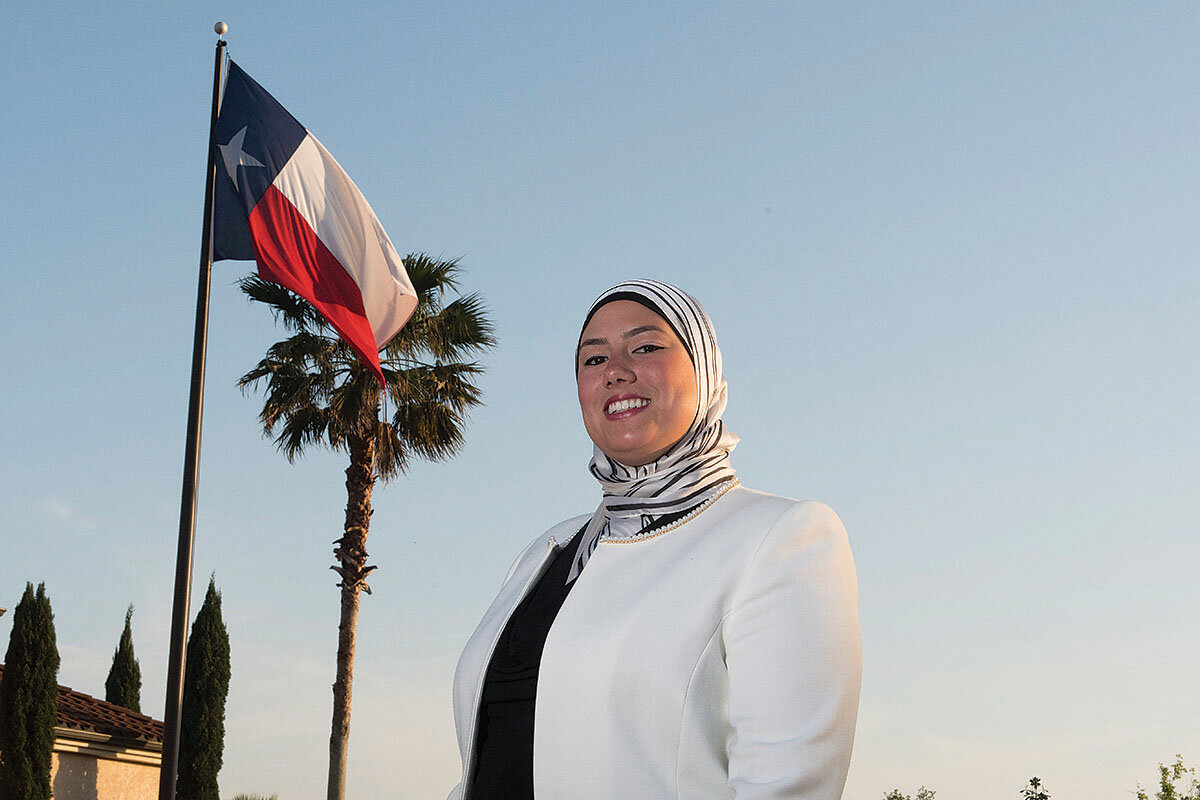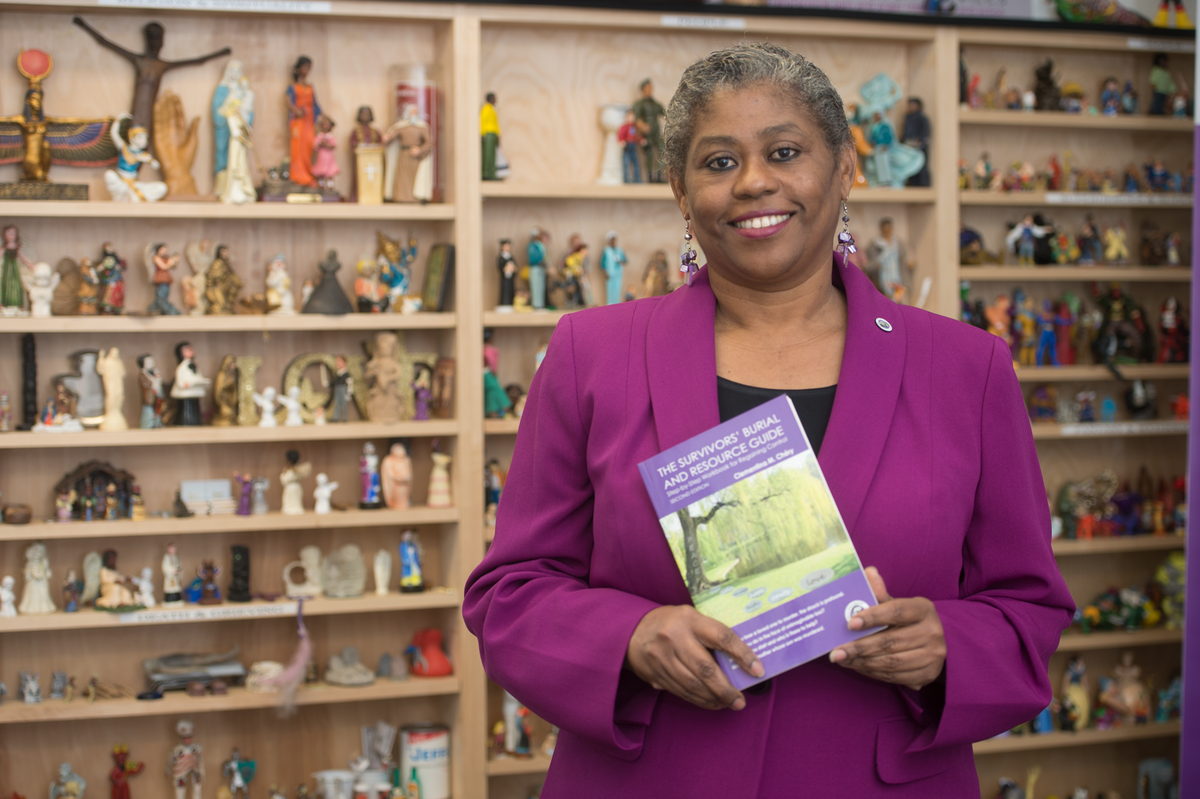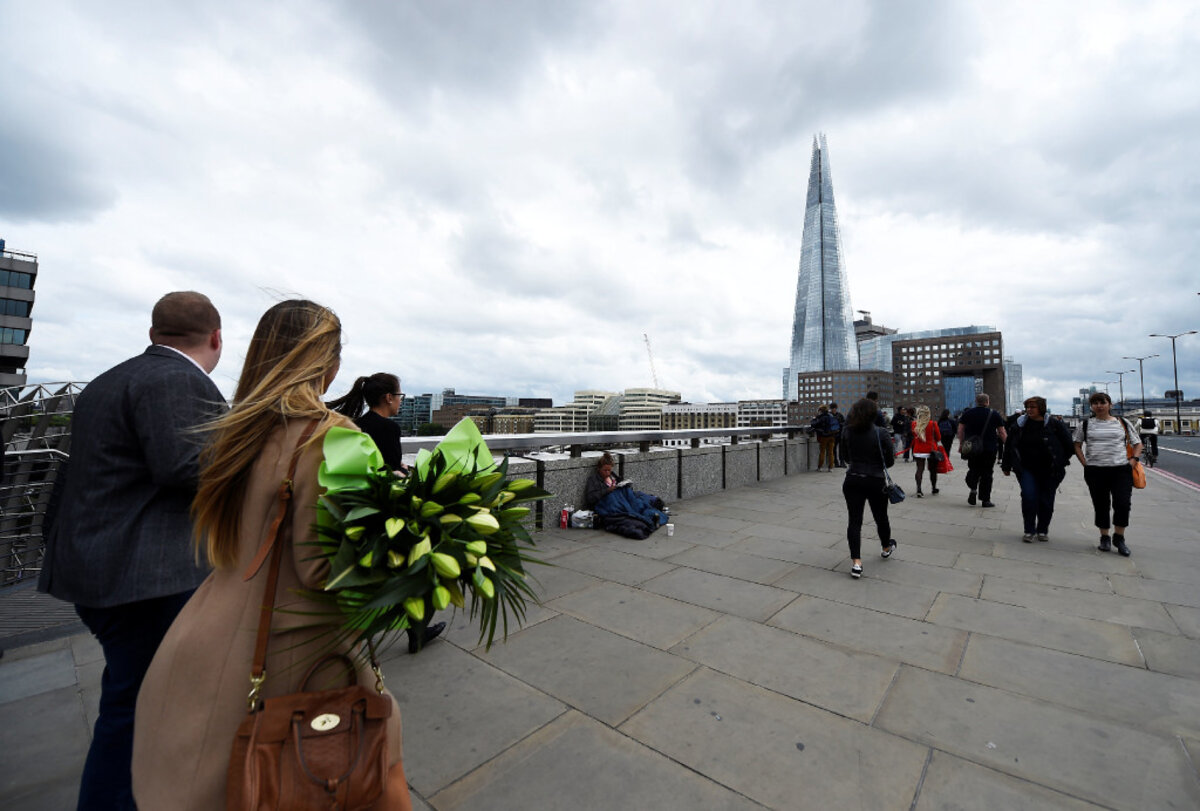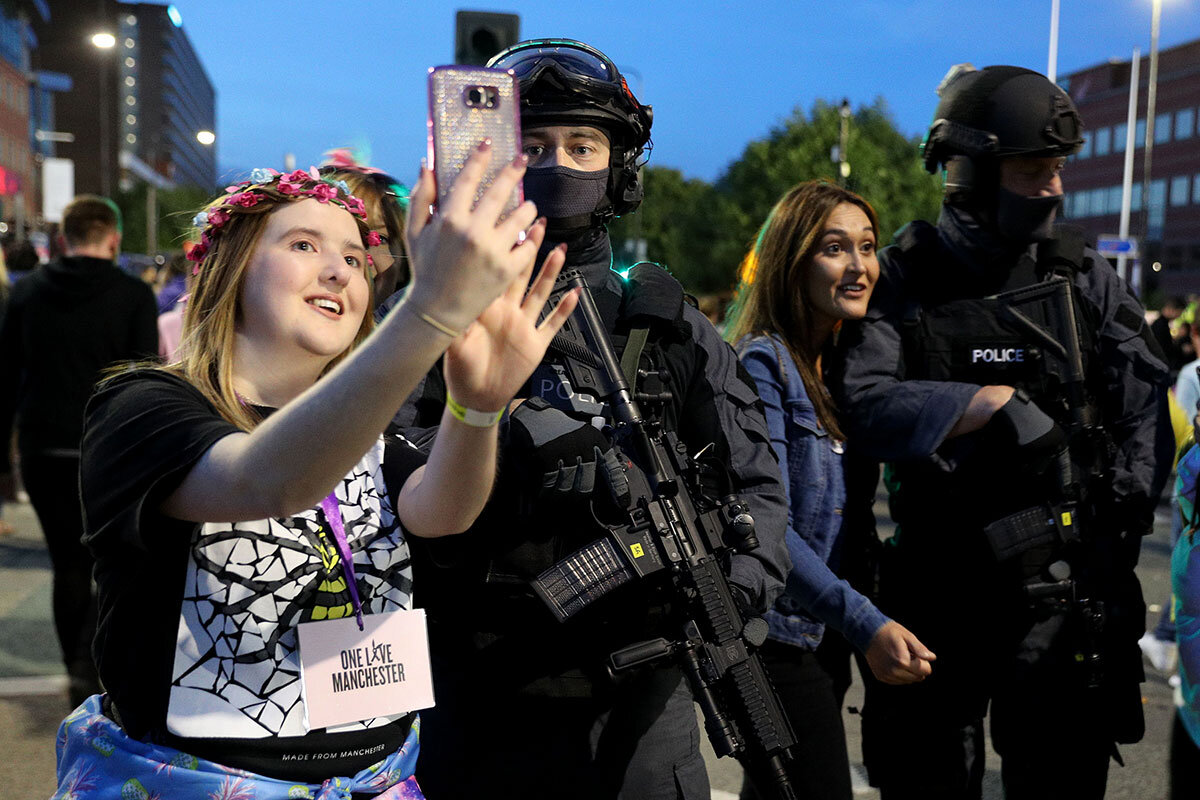The London attacks Saturday left the world with a familiar question: How to move forward after terror. Many of our staff have seen this unfold firsthand as they have reported around the world. We asked them to share their stories about how cities have healed before.
Monitor Daily Podcast
- Follow us:
- Apple Podcasts
- Spotify
- RSS Feed
- Download
 Mark Sappenfield
Mark Sappenfield
When anti-fascist left-wing extremists showed up in Portland, Ore., Sunday to counter a “Donald Trump free speech protest” by right-wing extremists, both sides were ready for a fight. One picture of what police confiscated included bricks, knives, hammers, clubs, a wrench, a hatchet, and tear gas. While most Americans might condemn such an approach to protest, the national conversation of today is often little more civilized than a set of brass knuckles. The Portland Police cache is not unrelated to that broader trend.
But there was no large-scale violence, and there was a different snapshot, too. One pro-Trump protester spent most of the day sitting amid the left-wingers, not hurling bricks but asking honest questions. The protester told The Oregonian newspaper that he likes to keep an open mind, trying to change people’s opinions and seeing if they can change his.
“There [were] a lot more intelligent people than I thought,” he said. A liberal protester acknowledged: “You certainly have humanized a fair number of your allies.”
That was a very different kind of conversation.




